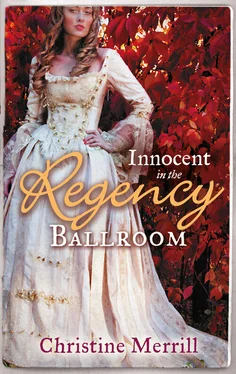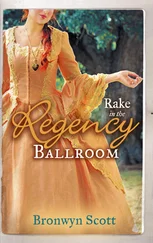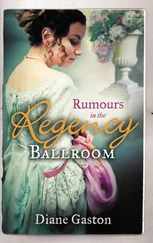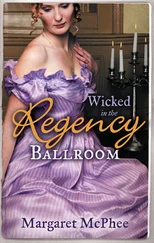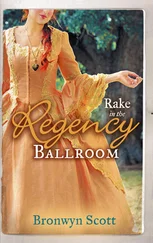CHRISTINE MERRILLlives on a farm in Wisconsin, USA, with her husband, two sons and too many pets—all of whom would like her to get off the computer so they can check their e-mail. She has worked by turns in theatre costuming, where she was paid to play with period ballgowns, and as a librarian, where she spent the day surrounded by books. Writing historical romance combines her love of good stories and fancy dress with her ability to stare out of the window and make stuff up.
In The Regency Ballroom Collection
Scandal in the Regency BallroomApril 2013
Innocent in the Regency BallroomMay 2013
Wicked in the Regency BallroomJune 2013
Cinderella in the Regency BallroomJuly 2013
Rogue in the Regency BallroomAugust 2013
Debutante in the Regency BallroomSeptember 2013
Rumours in the Regency BallroomOctober 2013
Scoundrel in the Regency BallroomNovember 2013
Mistress in the Regency BallroomDecember 2013
Courtship in the Regency BallroomJanuary 2014
Rake in the Regency BallroomFebruary 2014
Secrets in the Regency BallroomMarch 2014
Innocent
in the
Regency Ballroom
Miss Winthorpe’s Elopement
Dangerous Lord, Innocent Governess
Christine Merrill
www.millsandboon.co.uk
Miss Winthorpe’s Elopement
I can’t point to any one place or idea that inspired me to write the story of Penny and Adam. But I started on a day when I really just wanted to sit by myself and read. That is probably why I have a book-loving heroine. There is nothing quite like the feeling of sitting down with a good book, although I can’t seem to read as many as I buy. Penny’s overstocked library is definitely inspired by my own.
I don’t normally use pictures as inspiration, but the little china figurine in Penny’s sitting room really exists. I don’t own anything like it, but I wanted something that would remind me of long afternoons I spent in an aunt’s living room, surrounded by ‘breakables’. I found just the thing, searching the internet: a figurine so fussy that it seemed the polar opposite of serious scholarship.
I hope you enjoy Miss Winthorpe’s Elopement as much as I did. Come back soon, to discover what happens to Adam’s friend Tim.
To Sean:
For doing his homework on the
Greek classics. Without you, honey,
I’d have to do all my own research.
In the quiet of the library, Penelope Winthorpe heard the front doorbell ring, and set her book carefully aside, pushing her glasses up the bridge of her nose. She smoothed her sensible, bombazine skirt. Then she stood and strolled toward the front hall.
There was no reason to rush since hurrying would not change the results of the trip. Her brother had accused her of being too prone to impulsive actions. Seeing her hare down the hall every time the front door opened would reinforce his view that too much education and too much solitude were affecting her nerves.
But her package was two days late, and it was difficult to contain her anticipation. She rose eagerly with every knock at the door, hoping each one to be the delivery she’d been expecting.
In her mind, she was already holding the package, hearing the rustle of crisp, brown paper, running her fingers along the string that held it in place. She would cut the twine with the scissors on the hall table, and the book would be in her hands at last. She imagined she could smell the fresh ink and the paper, caress the leather of the binding, and feel the gold-embossed title under her fingertips.
And then, the best part: she would take it back to the library and cut the pages open, spread them carefully, turning each one and catching glimpses of words without really reading, not wanting to spoil the surprise, even though she knew the story, almost by heart.
At last, she would ring for tea, settle into her favourite chair by the fire, and begin to read.
It would be heaven.
When she got to the hall, her brother was sorting through a stack of letters. The post had come, but there was no sign of a package from the book seller.
‘Hector, did a delivery arrive for me? I had expected it by now, but I thought perhaps it might come with the post.’
‘Another book?’ He sighed.
‘Yes. The latest printing of The Odyssey .’
Her brother waved a dismissive hand. ‘It came yesterday. I sent it back to the shop.’
‘You did what?’ She stared at him, incredulous.
‘Sent it back. You already have it. I did not deem it necessary.’
‘I have translations,’ she corrected. ‘This was in the original Greek.’
‘All the more reason to send it back. I dare say the translations will be much easier for you to read.’
She took a deep breath and tried counting to ten before speaking, to control her rash tongue. She made it almost to five before blurting, ‘I do not expect to have trouble with the Greek. I read it fluently. As a matter of fact, I am planning a translation of my own. And, since I cannot translate words that are already in English, the new book will most certainly be necessary.’
Hector was looking at her as though she had sprouted a second head. ‘There are many adequate translations of Homer already available.’
‘But none by a woman,’ she responded. ‘I suspect that there are insights and subtleties I might bring to the material that will be substantially different than those already available.’
‘Inferior, perhaps,’ countered her brother. ‘The world is not clamouring for your opinion, Penny, in case you haven’t noticed.’
For a moment, the truth of that statement weighed heavy on her, but she shook it off. ‘Perhaps it is because they have not yet seen what I can accomplish. I will not know until I have tried. And for that, I will need the book I ordered. Which only cost a few pounds.’
‘But think of the time you would spend wasted in reading.’ Hector always considered such time wasted. She remembered his discomfort in the schoolroom, and his desire to escape from it as soon as possible, when their father was ready to leave the business in his hands. That a printer had such a low opinion of books never ceased to amaze her.
‘For some of us, Hector, reading is not a waste of time, but one of life’s great pleasures.’
‘Life is not meant to be spent in pleasure, Penelope. I am sure, if you put your mind to it, that you can find a better way to use your time.’ He looked her up and down. ‘While you needn’t be so frivolous as some young girls who are hellbent on matrimony, you could devote your time to higher pursuits. Helping with the poor, or the sick, perhaps.’
Penelope gnashed her teeth and set to counting. It was not that she had a distaste for charity work. It was certainly necessary. But it only showed how awkward she was around people, both rich and poor. And it served as a continual reminder to all that she was properly on the shelf, with no hope of a husband or children of her own to tend to. It felt like giving up.
Although, perhaps it was time.
And yet, she reminded herself, if she meant to give up, she could do it just as successfully at home, in front of the fire, alone except for her Homer.
This time, she made it to eight before speaking. ‘It is not as though I do not wish to contribute to society,’ she argued. ‘But I think that what I can do for the scholarly community is just as valuable as what I might accomplish tending the ill. And I do make regular donations to the church. The help that does not come by my hand can come from my purse instead. There have been no complaints.’
Читать дальше
